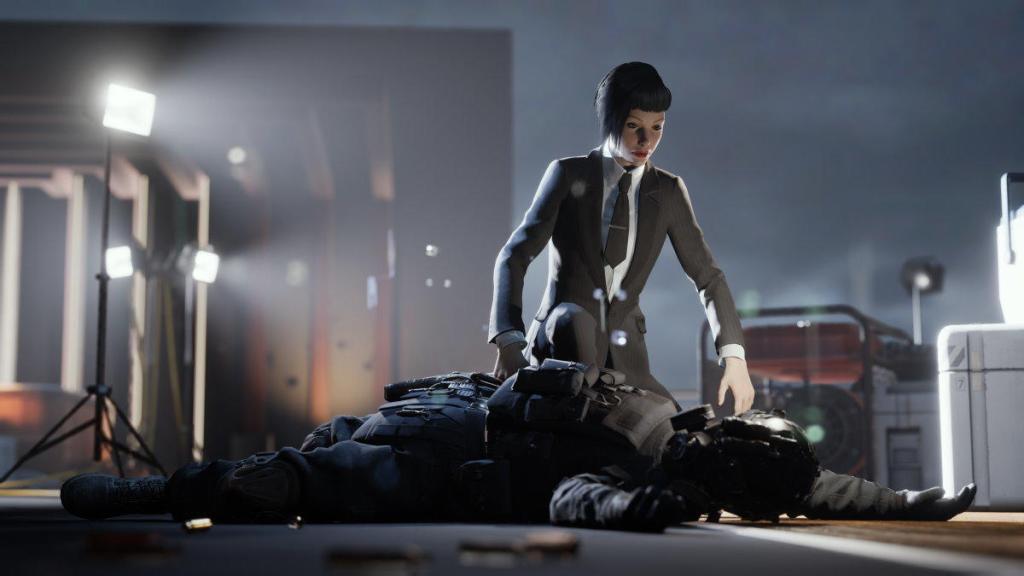Drama, doublecrossing, and (un)death await players who embark on Vampire: The Masquerade – Swansong‘s adventure. Set in the latest iteration of the long-running World of Darkness universe, Swansong casts players as three vampires trying to navigate the politics and intrigue of the Prince of Boston’s court. Many hallmarks of the game’s source material, what now-defunct publisher White Wolf dubbed a “storytelling game,” are present and work well in digital form, creating an engrossing single-player virtual tabletop experience. Unfortunately, the game is also rough around the edges, and its exploratory gameplay isn’t on par with the choice-based mechanics at its core.
Videos by ComicBook.com
Players work through Swansong‘s story by controlling three different members of the Camarilla, the largest and most influential of the sects that make up vampiric society. Galeb is a blue-blood with unquestioning loyalty to the Prince, whoever that may be at any given time. By contrast, Emem is the rebellious type who has only recently returned to court after a new Prince came to power. Leysha is less concerned with politics and more concerned with remaining with her daughter. However, the premonitions that threaten her sanity also draw the Prince’s attention. Players can level up these characters’ skills and abilities separately, but which scenes they participate in is predetermined as each follows a separate narrative path.

Vampire: The Masquerade, and the larger World of Darkness in general, has faced controversy over its lifetime, primarily for poorly thought out attempts to incorporate real-life tragedies into its mythology. Swansong avoids this pitfall by fully wrapping its tale in interpersonal power struggles between vampires and the threat posed by the few mortals aware of their existence. The game touches on some delicate subjects, including torture and implied sexual assault (or the vampire equivalent, at least), but it’s mostly vampire melodrama. On the modern vampire fiction spectrum, it’s less of a soap opera than The Vampire Diaries but more self-serious than True Blood and much less warm and optimistic than A Discovery of Witches.
Despite players having no choice in which characters they control for each scene, this is not a game on rails. As in any good tabletop roleplaying game, players can fail, and those failures have significant consequences. Instead of stopping the game in its tracks, a player’s missteps change how the story progresses. There are mysteries in Swansong that a player will not get to the bottom of before the game’s end if they make the wrong choices, and some opportunities can be permanently lost. Few games match this sense of looming consequence in narrative decision-making, and it inspires the type of impulsive desire to go back and do better that’s usually brought on by twitchier, score-based games.
While there’s violence in Swansong, there’s no combat gameplay. Upon entering a scenario, players begin exploring, searching for items and clues to help them gain access to new areas and solve puzzles. The exploratory aspects of the game can be tedious. Characters must get close to an object before the player can tell whether they can interact with it. This helps keep the screen uncluttered by an overbearing user interface, which helps the immersion but might inspire players to constantly grind their character’s up against every stationary object or wall, especially when stuck on a tricky puzzle, to ensure they didn’t miss a key card or another small but vital item. The puzzles are mainly challenging but not infuriating. However, a few are frustratingly opaque. At times, seemingly obvious chains of logic lead to nothing, while clues can be more confounding than the puzzles they aid in solving. The physical act of going from one place to another isn’t all that engaging either, which makes backtracking and exploring the few larger areas in the second half of the game a chore that players will be unwilling to shirk for fear of missing something vital. I’ll admit that the adventure game genre has never been my favorite, and this aspect of Swansong reminded me of why. The handful of bugs I encountered that left me trapped interacting with a computer or other object until I restarted the game didn’t help either.
Where the game shines is in its conversation. While interacting with NPCs, players can do their best to navigate the back-and-forth purely with dialogue or use their available skills and abilities. Skills cost willpower, but success will earn the player some back, encouraging a go big or not at all mentality. Abilities increase the player’s hunger, which threatens to turn the vampire feral and can only be reduced by luring innocents into a “safe room” for feeding (a pretty simple task throughout most of the game). Most of these skills and abilities have a chance of failure, and the game will use a die roll sequence (without revealing actual numbers) to give the sense that the player is making a skill check. The highest-stakes version of this is the game’s Confrontations, which play like skill challenge sequences from certain tabletop games. Players need to achieve a specific number of successes before rolling a certain number of failures to win the Confrontation. Whether they succeed or fail changes the story irrevocably. It’s an excellent adaptation of tabletop gameplay into digital form, creating the sense that one is playing at a table with an unseen gamemaster (or “Storyteller,” as the World of Darkness would have it).

Vampire: The Masquerade – Swansong does an admirable job of bringing the World of Darkness tabletop experience to video games. Anyone who has been a fan of or curious about Vampire: The Masquerade but perhaps struggles to get a gaming group together, or wants something to do between sessions, will find Swansong a welcome substitute. The strength of the narrative-based gameplay, bringing a rare weight to choices, successes, and failures, will give any fan of narrative or adventure games something to enjoy, even if the tedium of exploration will likely wear on players at least a bit. Vampire: The Masquerade – Swansong could have used another coat of polish before being released, but it does enough right that I hope to see the team behind it get another crack at the World of Darkness.
Rating: 3.5 out of 5
Vampire: The Masquerade – Swansong is available now for Windows PC, Nintendo Switch, PlayStation 4, PlayStation 5, Xbox One, and Xbox Series X and Series S. It was reviewed on a PlayStation 5 with a review code provided by the publisher.








